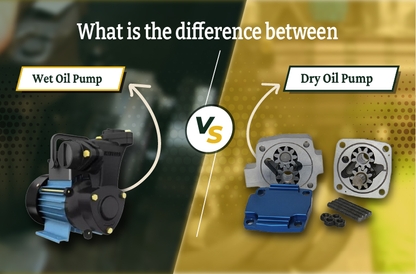Did you know that improper valve selection can cost industries millions of dollars annually due to downtime, maintenance, and inefficiency? Valves are the unsung heroes of industrial operations, which control the flow of liquids and gasses, ensure safety, and maintain process efficiency. Yet, many industrial owners overlook crucial factors when purchasing valves, which leads to costly consequences.

On the other hand many industrial owners also face these challenges, often because they don’t have the right information at their fingertips. Hence, to guide you through the essential steps to consider when purchasing valves for your industrial needs this blog is here to help.
Let’s dive deep into its consideration and get equipped to make confident and informed decisions for your industrial needs.
Understand Your Industrial Needs
To achieve optimal performance, safety, and cost efficiency, understanding your industrial needs is crucial. This foundational step ensures you select valves that are perfectly suited for your operations, which elevates efficiency and reduces costs.
Here are the key aspects you need to understand while considering valve for your industry:
Assessing Process Requirement: Identify the type of fluid or gas that the valve will control. Different media require different valve materials and designs. If needed, connect with experienced engineers or industrial valves manufacturers for recommendation. Understand the operating temperature range, make sure the valve you choose operates effectively within the temperatures to prevent failure.
Pressure levels: Understand the pressure range within your system. In many applications the pressure of gas or water is too high. Hence to handle and withstand such high-pressure conditions without compromising safety or performance you need to understand the pressure level on your application.
Compatibility and Integration: Understand and evaluate the current system and equipment to ensure that the valve is properly compatible with your application. Determine whether the valve needs to integrate with automated systems. Importantly, choose valves that can be easily controlled and monitored remotely if automation is a part of your process.
Discover the perfect valves tailored to your industrial needs
Material Selection
Material selection of valves plays an important role specially for enterprises that are operating in demanding environments. Choosing the right material for valves is crucial to ensure durability, efficiency, and safety.
Refer to the table to understand the different types of valve materials and the industries where they are commonly used:
| Valve Material | Industries | Description |
|---|---|---|
| Stainless Steel (SS) | Food & Beverage, Pharmaceuticals, Oil & Gas, Chemical Processing | Food & Beverage, Pharmaceuticals, Oil & Gas, Chemical Processing Highly resistant to corrosion and high temperatures. Ideal for clean, hygienic applications and harsh environments. |
| Brass | Water Supply, HVAC, Oil & Gas | Offers good corrosion resistance and durability at a moderate cost. Suitable for medium pressure and temperature applications. |
| Plastic | Chemical Processing, Water Treatment, HVAC | Lightweight, corrosion-resistant, and cost-effective. Ideal for handling corrosive substances and low-pressure systems. |
| Bronze | Marine, Water Supply, Fire Protection | Excellent corrosion resistance, particularly in marine environments. Durable and reliable for water applications. |
| Special Alloys | Aerospace, Petrochemical, Power Generation | Tailored for extreme conditions with superior strength and resistance to high temperatures and corrosion. Used in critical and demanding applications. |
Valve Type and Application
It is important to consider the type of valve before integration, because different industries have different needs and requirements. Importantly, each valve has its different capabilities and features which ensure optimal performance, safety, and efficiency for specific applications.
Let us understand each valve, their advantages, and its feature which helps you in making informed decisions.
Operational Aspects
Knowing your operational consideration is important to control your fluid and gas flow, rate, and pressure. Being unaware of your operational aspects is like fighting blindfolded. Hence, for reliable, effective, and uninterrupted performance carefully assess and understand these factors before choosing a valve.
Temperature of Fluid: Check the operating temperature of the fluid. High temperatures need valves that can withstand heat without degrading.
Fluid Types: Identify the type of fluid, considering whether it is mixed with chemicals, its thickness, and flow characteristics. This is crucial because different fluids require specific valve materials and designs to prevent corrosion or damage.
Pressure Rating: Pressure rating indicates the maximum pressure a valve can safely withstand while operating. Hence, choose a valve that can endure the maximum pressure without failing.
Maintenance Need: While choosing the valve consider its maintenance requirements. Make sure the valves that are easy to service and have less maintenance are best to install as it minimizes downtime and cost.
Installation Space: Some valves may not fit in particular space due to their size as it requires more room. So, consider selecting a fluid control and regulates manufacturer who builds flexible products that fits your installation space and is easy to access for maintenance and operation.
Cost and Value
Considering the cost before choosing a valve benefits your budget and ensures long-term savings and efficiency. Therefore, look into following cost and value aspects before purchasing valve:
Upfront Cost — Evaluate the initial purchase price and make sure it fits within your budget without compromising quality. Upfront costs also include the other costs associated while purchasing valves such as installation, maintenance, and operational expenses.
Long-term Value — Choose a valve that offers long term benefits with minimal maintenance, high durability, and energy efficiency. Particularly, high-quality valves may cost more upfront but save money over time through reduced maintenance and longer lifespan.
Total Cost of Ownership — The total cost of ownership includes the initial purchase price, installation costs, maintenance expenses, operational costs, and potential downtime. Hence, consider choosing a high quality valve because a cheaper valve might incur higher expenses later.
Reliability — Invest in reliable valves to minimize downtime, increase productivity, and enhance efficiency. Non reliable valves may frequently have to be replaced and repaired which can be costly and hinder your productivity.
Pro Tip — : Leverage the benefits of buying directly from B2B manufacturers as direct b2b manufacturers ensures quality, cost efficiency, and competitive price.
Customer Support and After Sales Services
One of the most important considerations while choosing the right valve manufacturer is to ensure reliable customer support and after sales services. Choose the valve supplier who has a reputation of providing comprehensive customer support.
Make sure the valve supplier has robust technical support and expertise in immediate help to solve your complex problems. Moreover, various valve exporters offer training for your staff to ensure proper usage and maintenance, which can prevent many common issues and extend the lifespan of your valves.
Additionally, to gauge the customer support of your valve exporter read customer reviews of after-sales service. Positive feedback from other customers is a good indicator of reliable support.
Bonus Tips
Here is an additional cheat sheet to consider while choosing valve:
- Check for industry standards compliance (API, ANSI, ISO).
- For operation decide between manual, electric, or pneumatic actuation.
- Consider UV resistance for outdoor applications.
- Research the expected lifespan of the valve.
- Determine if customization is available for specific needs.
- Confirm delivery times meet your project deadlines.
Ready to Purchase Valves For Your Industrial Use?
Now that you know the key considerations for purchasing valves, it's time to find the one that fits your requirements and demands. Keep the suggestions mentioned in this blog in mind. They will simplify the purchasing process and help you choose a valve that offers long-lasting performance and delivers the ROI you expect.
Want to buy valves from a manufacturer that meets all your Needs?



